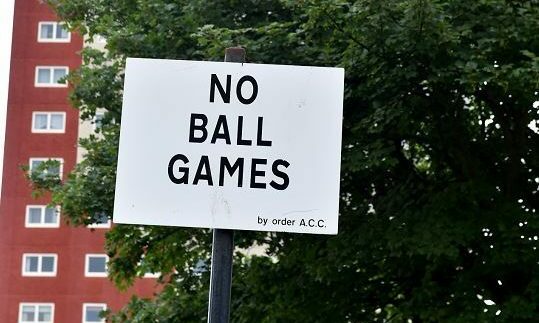Perhaps it should have been expected that sport being cancelled, in the wake of the Queen’s passing, would create its own mini-culture war.
While there was an air of inevitability that one sport would follow another and solemnly declare it was not the time to be playing, the narrative soon shifted from ‘what should be done?’ to ‘it should not be this’.
The official guidance that came from the government was that no events or sporting fixtures were obliged to be cancelled. Instead the decision would be left in the hands of the individual bodies that look after said sports, as to whether they should press on.
Perhaps it is a British thing, the fear of optics and upsetting anyone. But the large-scale postponements may have upset more people than they could have.
The Tour of Britain shelved its final three days, Scottish and English football wiped its weekend calendar, boxing at the O2 was cancelled, racing was suspended, the Scottish Rugby schedule was scrapped. None clearly felt it appropriate to carry on.
Cricket to Resume and Pay Tribute to Her Majesty Queen Elizabeth II pic.twitter.com/V8uhSkbF93
— England and Wales Cricket Board (@ECB_cricket) September 9, 2022
Some struck a more balanced tone. Golf and cricket called off their day’s play on Friday but resumed over the weekend. Formula One, while not a solely British sport, contains several drivers and teams from these shores and continued with a mark of respect to the Queen. The RFU stated club rugby in England would go ahead as normal.
My colleague Ryan Cryle said on these pages on Friday that he felt it was the wrong decision but not only that, it removes the optional outlet for people’s emotions.
Sport brings people together – why stop that?
We are often told how sport is a unifying concept for many. Through times of strife, grief and hardship, bringing groups of people, small or large, together for a brief period of time can act as a conduit for emotional release.
Everybody processes emotions in different ways. Some internalise and plough on with their day. Some openly reminisce and cry. Some will vent whatever pent-up emotions they have by shouting at people kicking a ball about. All are perfectly acceptable.
But what removing that option did this weekend was simply stir up more frustration, at a time when we are supposed to be healing as a country.
Ultimately people can pay respects how they see fit. If they wish to stay at home and have quiet moments with family, they should be allowed to do so. If people wanted to stand on the side of fields and pitches to watch something they love, there ought to be an outlet for that.
Hopefully this was a temporary stoppage and those sports who choose to shut down can see what could have been done. The Queen and the royal family, like many of us up and down the country, are well-known fans of sport.
When football teams in Ukraine are resuming play, at a time when their country is at war, it felt a bit of a misstep for certain sports to tell their supporters how to channel their emotions.
I, like many, am not a huge royalist. But sat watching the news on Thursday evening, plus the following 24 hours, felt like a weird, surreal existence.
Nothing like this has ever happened in any of our lifetimes and regardless of your views on the royal family, an elderly lady, mother and grandmother had passed away.
Doing what British people do best, blunder on through the mire with a respectful stoicism, would have been oddly fitting.


Conversation